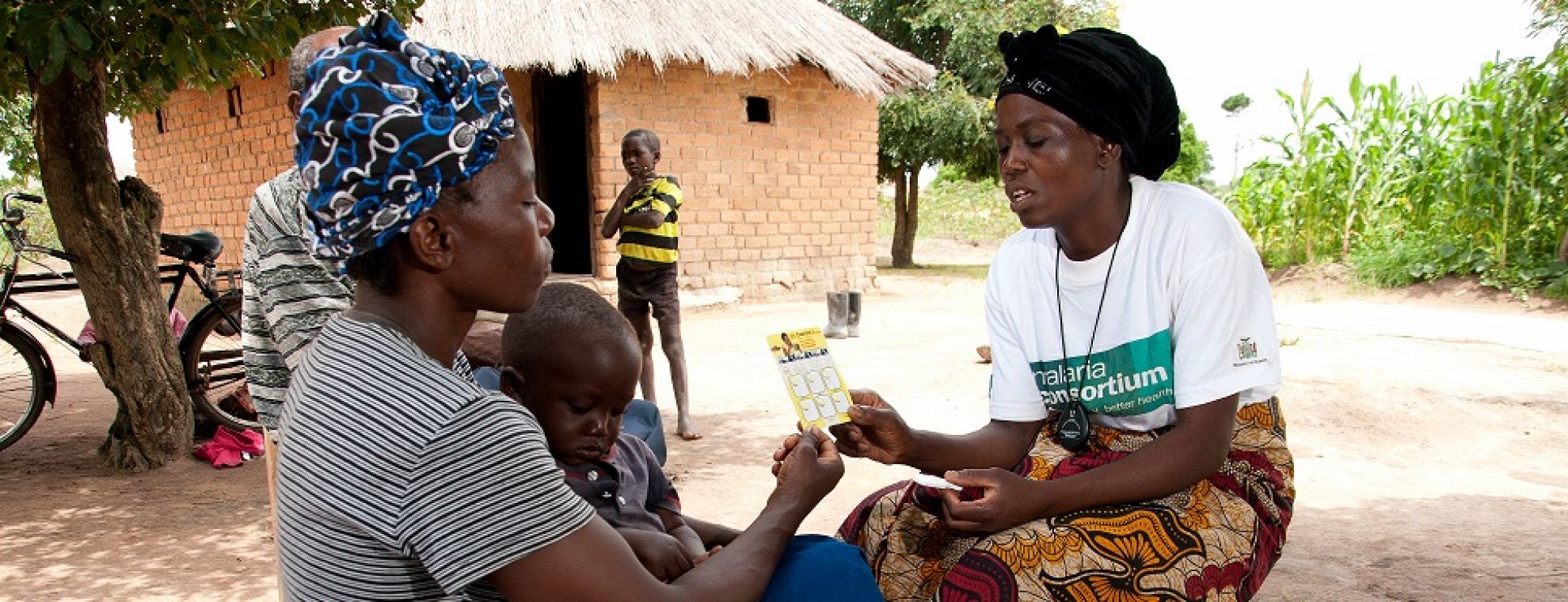
Getting research evidence into health policy and practice - let's talk
14 July 2014With the support of many health-related journal editors, BioMed Central hosted the inaugural ‘Health Services Research: Evidence-based practice’ conference in London from 1-3 July, bringing together distinguished leaders working in health services research to share learning and discuss their latest findings.
The focus of the conference was the process of getting research evidence into health policy and practice, and the challenges in doing so, with key discussion topics including health economics, health systems, human resources for health, implementation science and health policy.
Kirstie Graham, Malaria Consortium Technical Officer and COMDIS-HSD Project Coordinator, attended the event to present recent findings from a research study in rural Zambia, conducted as part of the COMDIS-HSD Research Programme Consortium funded by the UK government. The study explored the rational use of antibiotics by community health workers (CHWs) and caregivers for treatment of suspected pneumonia, as part of a package of care delivered at the community-level for key childhood illnesses. The results, which could be used to help inform future policy and practice, indicated that CHWs are capable of diagnosing suspected pneumonia and subsequently providing appropriate treatment. However, improved diagnostic tools for the assessment of pneumonia symptoms would strengthen rational use of antibiotics. In addition, whilst the adherence of caregivers to the antibiotics prescribed is promising, it could be improved through shorter antibiotic regimens. You can view the poster with the findings here.
The conference also hosted a broad range of speakers and subjects relating to health services research, covering research studies and experiences from all countries; low, middle and high income. Over the course of the conference, speakers touched on a wide variety of topics, with some key highlights:
- Nicholas Mays, one of the two keynote speakers, began the conference with a thought-provoking presentation, critically analysing the utility of new approaches to public policy, and in particular the use of data from randomised controlled trials (RCTs). He questioned the perception of RCTs as the ‘holy grail’ of evidence, and suggested the use and importance of other techniques. Read the abstract here.
- Anna Gagliardi, Associate Professor, University of Toronto, gave a lecture on the characterisation and analysis of guideline implementation tools (GI tools) and spoke about the importance of GI tools to help ensure consistent and effective implementation of guidelines. In particular, she brought up three different tools that could be used to help develop and implement guidelines – GRADE, GLIA and AGREE. Read the abstract and learn more.
- Susan Michie highlighted the importance of recognising the need for behaviour change within every public health intervention and briefly outlined the process, materials and training available for using behaviour change theories to design effective interventions. Read the abstract here.
- Trisha Greenhalgh, Dean for Research Impact, Barts and the London School for Medicine and Dentistry, gave an interesting talk on the state of academia and the current pressure for higher education to demonstrate the impact of its research on society. Whilst focused on the academic sector, she provided many insights relevant across all organisations to the challenges of articulating and attributing the impact of research on policy and practice. Read the abstract here.
You can learn more about the conference by visiting the webpage here.
Keywords: Community delivery | Diagnosis | Drug resistance | Advocacy and policy
Latest news
- Malaria Consortium honoured by Ugandan government for contribution to combat malaria23rd April 2024
- International summit calls for AMR accountability in public health interventions21st March 2024
- Global SMC community celebrates new milestone at SMC Alliance Annual Meeting in Nigeria6th March 2024
- Scaling up key interventions could halve pneumonia-related childhood mortality13th February 2024
- Malaria Consortium and eGov Foundation join Mozambique’s national malaria programme to digitalise seasonal malaria chemoprevention campaigns8th February 2024
- World’s first malaria vaccine rollout launched in Cameroon22nd January 2024